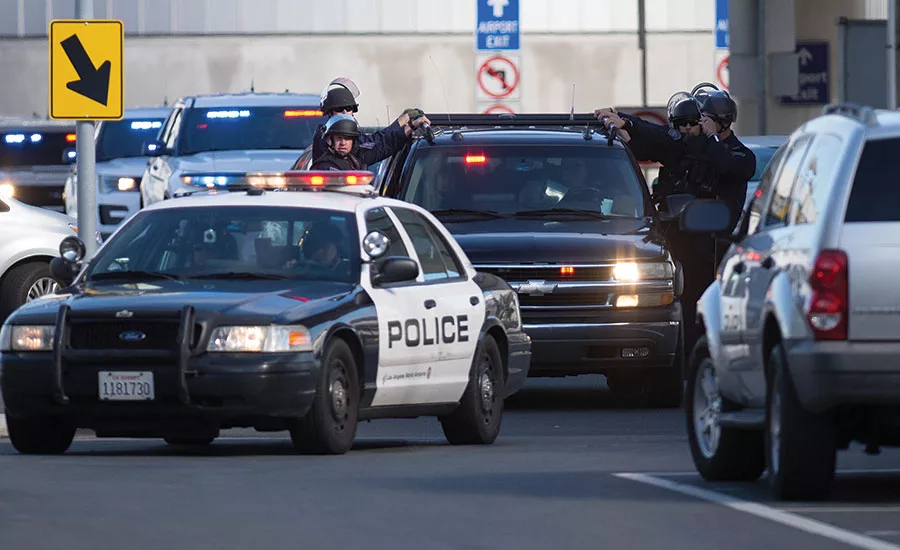Gov. Abbott Releases Texas Safety Action Report

Texas Governor Greg Abbott unveiled the Texas Safety Action Report. The Governor’s report elaborates on the Executive Orders issued last week that are intended to bolster the public safety coordination that can prevent mass shootings. The Texas Safety Action Report also provides additional ideas for the Texas Legislature and state agencies to consider that can make communities safer while also respecting the Constitution.
Governor Abbott’s Texas Safety Commission convened community leaders, law enforcement officials, federal officials, business representatives, faith leaders, tech experts, counselors, advocates, lawmakers, and survivors of mass shootings to study what has happened, identify any shortcomings in our current systems, and explore ways to prevent these horrific tragedies from taking place.
"We must act with resolve in response to the despicable acts of violence we have witnessed in Texas," said Governor Abbott. "Solving the problems that have led to these horrific events will take more than governmental action. The complete solution will require more than what is outlined in this paper. It will require parents, families, churches, law enforcement, community groups, schools, and others working together to fortify the social fabric of our society. Texans are at our best when we are tested. Together, we will transcend this test, and forge an even better future for our state."
Additional executive actions include:
- Strengthen Domestic Violence High Risk Teams across the state.
- Expand law enforcement training offered through the Advanced Law Enforcement Rapid Response Training (ALERRT) Center at Texas State University, and develop a public awareness campaign for the “Avoid, Deny, Defend” program.
- Refresh training for all licensed peace officers on the procedures and criteria for “emergency detention”.
- Educate physicians and behavioral health professionals about the law concerning disclosure of confidential information to law enforcement.
- DPS should coordinate with fusion centers across the state to promote continuous improvement and accountability.
- Accelerate the development and implementation of the DPS safe firearm storage campaign, supported by the recent $1 million appropriation.
In regards to firearm safety, the report says the Legislature should consider:
- Expediting the reporting of criminal convictions to the Texas Department of Public Safety.
- Prohibiting straw purchases of firearms under state law. A primary goal is to keep guns out of the hands of criminals while protecting the Second Amendment rights of law-abiding citizens.
- Laws that crack down on criminals who try to illegally buy or possess guns.
- Requiring courts to inform convicted criminals, both orally and in writing, that they may no longer possess firearms.
- Stiffer consequences for criminals convicted of violent offenses.
- Requiring that any stolen firearms be reported to the county sheriff within 10 days of when the owner becomes aware of the theft.
- Ways to make it easy, affordable, and beneficial for a private seller of firearms to voluntarily use background checks when selling firearms to strangers.
- Prohibiting juvenile offenders convicted of certain violent crimes from legally purchasing firearms.
- Spur cooperation to encourage social media companies to report suspicious activity to law enforcement.
- Implementing and funding a Texas program, similar to federal initiatives, which uses a multi-pronged strategy of policing and prosecution, agency integration, and identification of violent crime hot spots. The focus would be on criminals with guns, not law-abiding Texans.
- A law that works in conjunction with the proposed federal “Protecting Communities and Preserving the Second Amendment Act” of 2019.
Suggested additional strategies include:
- The Legislature should work with the TEA to develop strategies to improve parental engagement in schools.
- When updating the Health TEKS, the State Board of Education (SBOE) should emphasize student mental health issues, including depression, social media immersion, and drug abuse.
- The Legislature should consider amending state law to ensure schools are notified when former students are arrested.
Looking for a reprint of this article?
From high-res PDFs to custom plaques, order your copy today!






